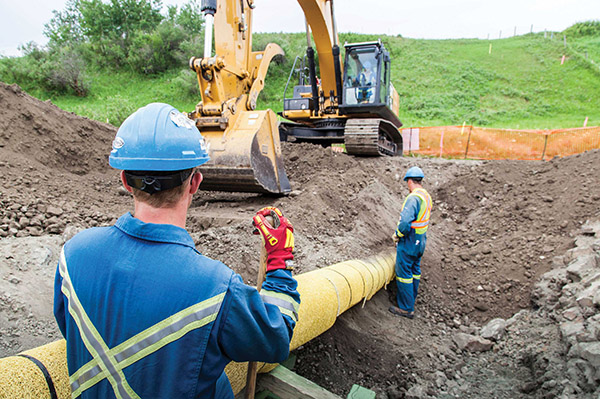Canada Court Ruling on Key Environmental Law Risks Deterring Investments
(Reuters) — A Canadian court ruling that voided most of Prime Minister Justin Trudeau's environmental assessment law for resource projects has sparked fresh policy uncertainty and risks deterring investments, company and industry executives said.
Canada's Supreme Court dealt Trudeau's Liberal government a blow last week when it ruled the Impact Assessment Act (IAA) was too broad in designating which major projects should fall under federal environmental assessment.
Already, Canada has a reputation for being a difficult place to build major projects due to high regulatory and environmental hurdles. The prospect of further policy changes risks unnerving investors and industry executives urged Ottawa to amend the legislation quickly.
"We haven't gotten any sort of concern from investors yet, but I think if the uncertainty draws out in terms of how they're going to move forward, then that could start to have an impact,” said Mark Selby, CEO of Canada Nickel Company, whose proposed Crawford Nickel Project in northeastern Ontario is going through the IAA process.
Selby said he was "very happy" with the IAA process so far and surprised by the court decision.
Canada's main oil-producing province Alberta, which brought the legal challenge against the IAA, celebrated the ruling as win for provincial jurisdiction and natural resource development. The Canadian Association of Petroleum Producers, an intervenor in the case, also said the law hindered project development.
The ruling leaves 23 major natural resources and infrastructure projects that were undergoing assessment waiting for clarity as the Impact Assessment Agency of Canada (IAAC) reviews the court's opinion.
"Prolonged uncertainty is a roadblock to building the mines and infrastructure we urgently need to achieve our climate change, supply chain security and critical minerals goals," the Mining Association of Canada said in a statement.
The ruling comes as Canada seeks billions of dollars of fresh investments to unearth minerals that play key role in the transition to a greener economy. More than $20 billion in foreign capital has fled the oil patch since 2017, partly because of delays in building new pipelines.
The CEO of Suncor Energy, whose proposed oil sands Base Mine extension in northern Alberta is undergoing an impact assessment, warned this week that unpredictable Canadian energy policy scared away capital.
Suncor did not respond to requests for comment on the impact of court decision.
The ruling also raises questions over Canada's ability to push through key climate legislation and the possibility of Ottawa facing fresh legal challenges to other policies. Both its Clean Electricity Regulations and an oil and gas emissions cap are firmly opposed by Alberta.
One Less Cook
Despite the immediate uncertainty, some policy experts said the court decision should ultimately improve Canadian environmental assessments.
The federal government has pledged to work quickly to improve the legislation. An IAAC spokesperson said the agency will communicate more details on its planned approach in coming days.
Heather Exner-Pirot, special advisor at the Business Council of Canada, said the ruling was an opportunity to improve flawed federal policy.
A cabinet committee focused on regulatory efficiency for clean growth projects, set up in September and chaired by Labor Minister Seamus O'Regan, will look at possible amendments to the IAA, a government source said.
"O'Regan is the most pro-development minister there is," Exner-Pirot added.
Canada will likely end up with legislation similar to the Canadian Environmental Assessment Act (CEAA), which the IAA replaced, said Robin Junger, former head of British Columbia's Environmental Assessment Office and a partner at law firm McMillan.
He said amending the IAA could remove duplication with provincial environmental assessments and permitting, resulting in "one less cook in the kitchen".
Related News
Related News

- Keystone Oil Pipeline Resumes Operations After Temporary Shutdown
- Freeport LNG Plant Runs Near Zero Consumption for Fifth Day
- Biden Administration Buys Oil for Emergency Reserve Above Target Price
- Mexico Seizes Air Liquide's Hydrogen Plant at Pemex Refinery
- Enbridge to Invest $500 Million in Pipeline Assets, Including Expansion of 850-Mile Gray Oak Pipeline





Comments